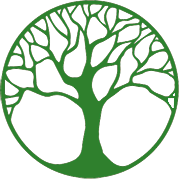Reincarnation, It's a Tough Job, by David Barrows
- Log in to post comments
This is a tough place. Human animals have attempted to mitigate the pain of existence in a variety of ways. A recent report by the BBC suggests pain avoidance has been practiced for a very long time: “People were getting high on hallucinogenic drugs in Spain around 3,000 years ago, according to new research. Scientists say that hair from a burial site in Menorca shows that ancient human civilization's used drugs derived from plants and bushes. It is believed to be Europe's oldest direct evidence of people taking hallucinogenic drugs”.
To my knowledge no humans have asked to be born into this world. Humans have been born with a variety of mental and physical disabilities. We are then told that humans will be judged based upon their behavior notwithstanding the fact that humans have been born in a less than perfect state. The relevant question then becomes what happens after death. The Theories, Stories or Bubbameisters suggest a range from oblivion to Paradise/Hell for eternity.
One “Story” suggests something called reincarnation: “Reincarnation, also known as rebirth, transmigration, or metempsychosis (Greek) is the concept that the non-physical essence of a living being begins a new life in a different physical form or body after biological death. Resurrection is a similar process hypothesized by some religions in which a soul comes back to life in the same body. In most beliefs involving reincarnation, the soul is seen as immortal and the only thing that becomes perishable is the body. Upon death, the soul becomes transmigrated into a new infant or animal to live again”.
How does the process work: “Buddhist traditions vary in their mechanistic details on rebirth. Most Theravada Buddhists assert that rebirth is immediate while the Tibetan and most Chinese and Japanese schools hold to the notion of a bardo (intermediate state) that can last up to 49 days. The bardo rebirth concept of Tibetan Buddhism, originally developed in India involves 42 peaceful deities, and 58 wrathful deities. The major Buddhist traditions accept that the reincarnation of a being depends on the past karma and merit (demerit) accumulated, and that there are six realms of existence in which the rebirth may occur after each death”.
The size of the observable universe is approximately 93 billion light-years in diameter filled with galaxies, stars and planets. For simplicity we assume that human reincarnation exists within this jurisdiction, earth. 137 million people are born every year and 58 million people died during the same period (excluding other forms of animal life). That is a lot of work to do each day. I do not understand who or what runs this process. Is it a big supercomputer in the sky with powerful algorithms?
Reincarnation made some sense when the population was static. The average human life expectancy was very short. Humans were born and died but the population remained the same size. That may have been the rationale for assuming that the soul is recycled into whatever. Is this concept still relevant when the earth's population is 8 billion?
